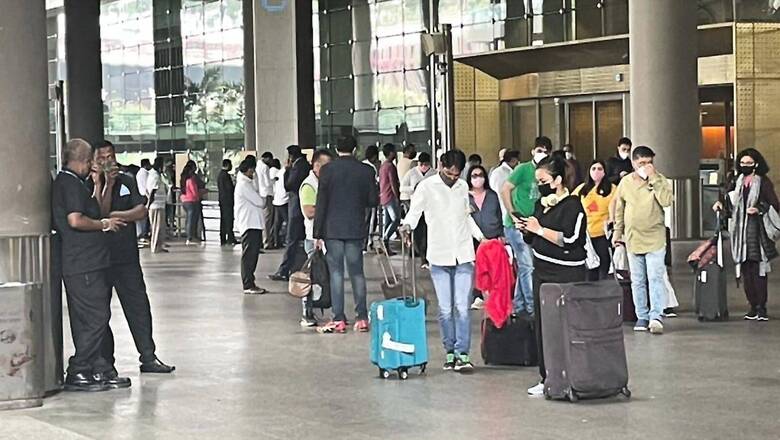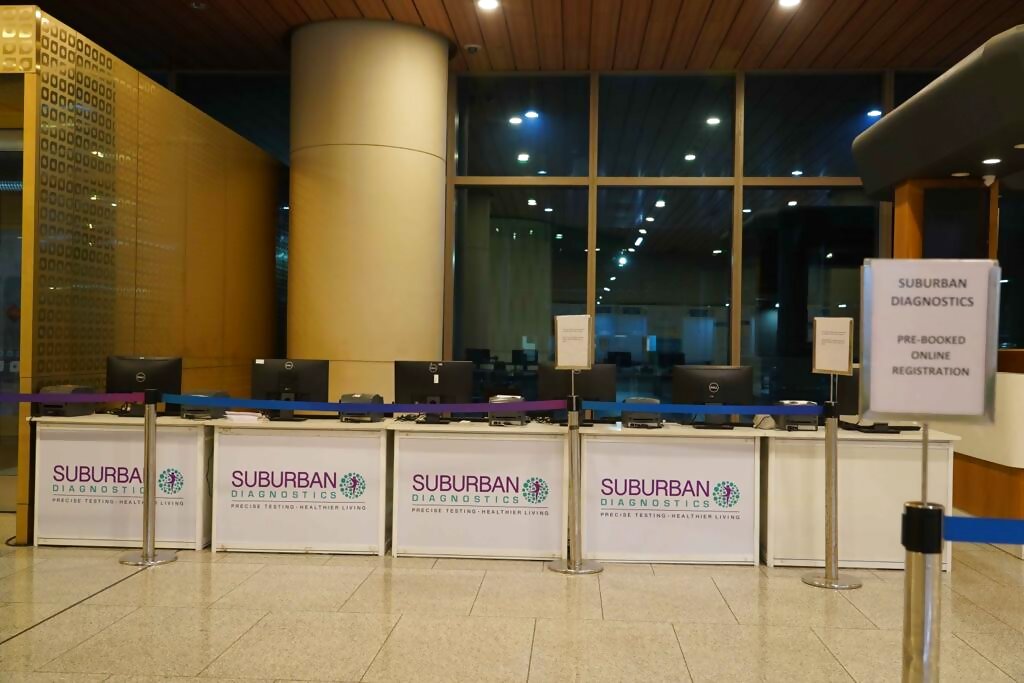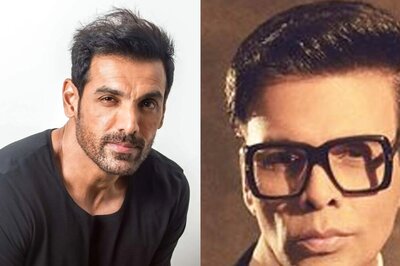
views
As the Omicron variant threatens to trigger a new Covid-19 wave, the Centre has asked states to keep a strict vigil on international passengers coming to the country. This has, however, disrupted the travel plans of several visitors, adding to the woes of a new variant.
In a new set of travel guidelines issued by the BMC on December 1, those entering Mumbai from ‘at risk countries’ as identified by the Centre, will have to take an RT-PCR test, follow seven days of compulsory institutional quarantine and repeat the RT-PCR test on the second, fourth and seventh. Domestic travellers coming to Mumbai require a negative RT-PCR report irrespective of their vaccination status. RT-PCR test and seven-day quarantine rule also apply to international travellers from other countries now.
The guidelines have made things difficult for both inbound and outbound international passengers, with many ruing the lengthy procedure.
“I’m coming from UK. Everything was fine till I landed in India. But in India, getting an RT-PCR test was a pain. You pay Rs 4,000, you get the report in one hour. You pay Rs 500 and the report comes in four hours. Yesterday, we left London at 8 and now we are reaching here, so it was a long journey. I took RT-PCR test in London but still I had to take another one after landing. Why did they make us go through all the pain of filling the Suvidha form if I had to take a test again? It’s getting very difficult for travellers; there are old people inside still waiting for their report,” said a couple returning from London on December 1.

RT-PCR test and seven-day quarantine rule also apply to international travellers from other countries now. (News18)
Prerak Kadakia, a 38-year-old Mumbai-based entrepreneur, is scheduled to take his first international business trip after two years of the pandemic. But his plans are all up in the air as fear of Omicron grips the nation.
“I’m booked for Belgium on Saturday but the thing is India has put certain restrictions on ‘At Risk’ countries. The worry is I don’t know what will be the situation when I fly out, if they take some stricter action, I don’t want to be in a situation where return is difficult. From business point of view, it’s important for us to travel. It’s been two years and business has become stagnant. I’ll take a call on Friday. There is a lot of documentation that’s required but that is fine. I just don’t want to get stuck somewhere. I had a friend who got stuck in South Africa when Omicron emerged. His flight to Dubai got cancelled and then he had to go to Belgium to fly to Dubai. I don’t want to go through that kind of stress,” he said.
After a lethal second wave, BMC is also not taking any chances. In the backdrop of Omicron threat, Mumbai Mayor Kishori Pednekar paid a visit to the airport in the dark of the night to take stock of the preparedness. “We have already started quarantine for those coming from Europe. There is mandatory institutional quarantine for a week and then they will have to test again,” she said.
Not just the aviation industry, the travel business is also on the edge after seeing steady revival with Covid-19 cases dropping and things opening up again.
However, managing director of SOTC Travel Vishal Suri insisted there is no reason to press the panic button. “We are asking our clients to not alter their plans yet. Yes there are some norms put in place by the government and we will follow all the protocols, but there is no scientific data on Omicron and things will be clearer in a week. Also, we provide a service which factors in these uncertainties for our clients so they need not worry. Be it flight cancellations, or delay — they will be taken care of. Be it at hotels or during trips, our staff is vaccinated and follow all safety norms.”
While the fear of Omicron variant is palpable, one has to learn to live with the virus following often forgotten, simple Covid-19 protocol like wearing a mask and keeping physical distance.
Read all the Latest India News here


















Comments
0 comment